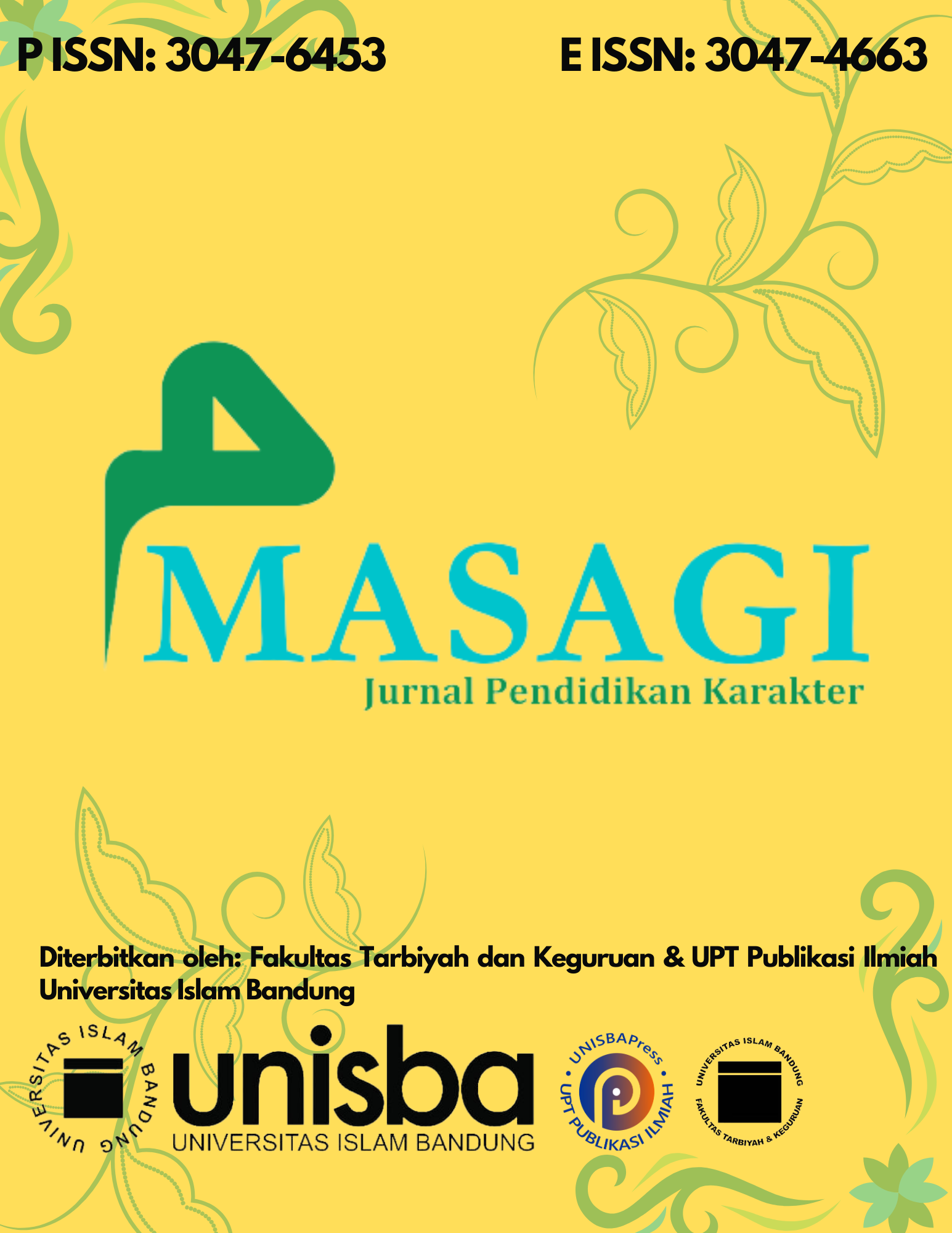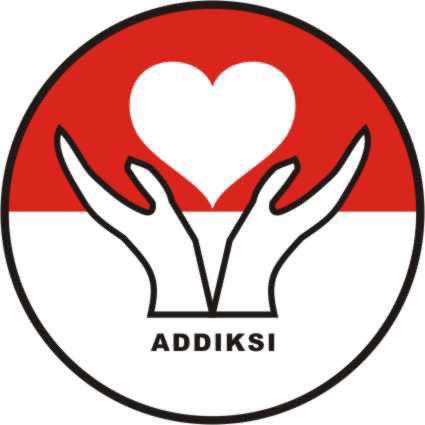Promoting the Character of Respect for Each Other through the Pancasila Student Profile Strengthening Project (P5): Educational Transformation in the Merdeka Curriculum Era
DOI:
https://doi.org/10.29313/masagi.v1i2.5440Keywords:
Merdeka Curriculum, P5, Respect, TeacherAbstract
This study aims to analyze how the P5 in Merdeka Curriculum can strengthen students' mutual respect character. Using a qualitative approach based on documentation studies, this research examines curriculum documents, learning modules, project implementation reports, student reflections, and school evaluations to understand the implementation of P5 in depth. The results show that P5, through themes such as Local Wisdom and Unity in Diversity, provides opportunities for students to learn to recognize and appreciate diversity. Heterogeneous group-based projects are an effective medium in training students to collaborate, understand differences, and resolve conflicts constructively. Students' reflections showed positive changes in the way they viewed cultural and social differences. However, this study also found that the successful implementation of P5 is influenced by teacher readiness, resource availability, and educational policy support. The conclusion of this study is that P5 has great potential in shaping students' respectful character if implemented with adequate support. It is recommended that schools improve teacher training, provide supporting facilities, and allocate sufficient time for project implementation. These interventions are important to ensure that the positive impact of P5 can be felt equally by all students.
References
Abdillah, G. R. (2024). Arah Pendidikan Indonesia dalam Tataran Filsafat Pendidikan dan Karakter. Masagi: Jurnal Pendidikan Karakter, 1(2 November), 124–135. https://doi.org/https://doi.org/10.29313/masagi.v1i2%20November.4593
Alhamuddin. (2024). Enhancing Social Skills in Islamic Religious Education at the Junior High School Level: A Differential Instruction Approach. Jurnal Pendidikan Islam Indonesia, 8(2). https://doi.org/10.35316/jpii.v8i2.565
Alhamuddin, A. (2018). Abd Shamad al-Palimbani’s Islamic education concept: Analysis of Kitab Hidayah al-Sālikin fi Suluk Māsālāk lil Muttāqin. Qudus International Journal of Islamic Studies, 6(1), 89–102. https://doi.org/10.21043/qijis.v6i1.3717
Alhamuddin, A. (2019). Politik Kebijakan Pengembangan Kurikulum di Indonesia Sejak Zaman Kemerdekan Hingga Reformasi (1947-2013). Prenada Kencana.
Alhamuddin, A., Inten, D. N., Mulyani, D., Suganda, A. D., Juhji, J., Prachagool, V., & Nuangchalerm, P. (2023). Multiple intelligence-based differential learning on critical thinking skills of higher education students. International Journal of ADVANCED AND APPLIED SCIENCES, 10(8), 132–139. https://doi.org/10.21833/ijaas.2023.08.015
Alhamuddin, A., Nur Inten, D., Adwiyah, R., & Fauzan, N. (2024). Developing the I am Anti-Corruption Learning Model and Its Impact on Reducing Student Fraud. Jurnal Pendidikan Progresif, 14(01), 713–731. https://doi.org/10.23960/jpp.v14.i2.202452
Alhamuddin, A., Surbiantoro, E., & Dwi Erlangga, R. (2022). Character Education in Islamic Perspective.
Alhamuddin, Fanani, A., Yasin, I., & Murniati, A. (2020). Politics of Education in Curriculum Development Policy in Indonesia from 1947 to 2013: A Documentary Research. Jurnal Pendidikan Islam, 9(1), 29–56. https://doi.org/10.14421/jpi.2020.91.29-56
Alifuddin, M., Alhamuddin, A., & Nurjannah, N. (2021). School of Anak Laut (Sea Children): Educational Philanthropy Movement in Bajo Community of Three-Coral World Center. Jurnal Iqra’ : Kajian Ilmu Pendidikan, 6(1), 164–179. https://doi.org/10.25217/ji.v6i1.1057
Alifuddin, M., Alhamuddin, A., Rosadi, A., & Amri, U. (2021). Understanding Islamic Dialectics in The Relationship with Local Culture in Buton Architecture Design. KARSA: Journal of Social and Islamic Culture, 29(1), 230–254. https://doi.org/10.19105/karsa.v29i1.3742
Alifuddin, M., Suarni, Alhamuddin, & Fanani, A. (2022). Religious Education in the Mitigation Space: The Significance of the Muhammadiyah Enlightenment Movement for West Sulawesi Earthquake Survivors. Jurnal Pendidikan Islam , 11(1), 61–74.
Borah, R. R. (2013). Slow Learners: Role of Teachers and Guardians in Honing their Hidden Skills. International Journal of Educational Planning & Administration, 3(2), 139–143. http://www.ripublication.com/ijepa.htm
Goldstein, O. (2016). A project-based learning approach to teaching physics for pre-service elementary school teacher education students. Cogent Education, 3(1). https://doi.org/10.1080/2331186X.2016.1200833
Heyneman, S. P., & Loxley, W. A. (1983). The effect of primary-school quality on academic achievement across twenty-nine high- and low-income countries. American Journal of Sociology, 88(6), 1162–1194. https://doi.org/10.1086/227799
Huda, M. (2024). Pengembangan Pendidikan Karakter di Masyarakat. Masagi: Jurnal Pendidikan Karakter, 1(1), 24–30. https://doi.org/https://doi.org/10.29313/masagi.v1i1.3517
Kavitha Devi, M. K., & Thendral, M. S. (2023). Using Kolb’s Experiential Learning Theory to Improve Student Learning in Theory Course. Journal of Engineering Education Transformations, 37(1), 70–81. https://doi.org/10.16920/jeet/2023/v37i1/23133
Martinez, C. (2022). Developing 21 st century teaching skills: A case study of teaching and learning through project-based curriculum . Cogent Education, 9(1). https://doi.org/10.1080/2331186x.2021.2024936
Miles, M. B. &Huberman. (1986). Qualitatif Data Analysis: A Sourcebook of New Method. Sage Publication.
Mishra, N. R. (2023). Constructivist Approach to Learning: An Analysis of Pedagogical Models of Social Constructivist Learning Theory. Journal of Research and Development, 6(01), 22–29. https://doi.org/10.3126/jrdn.v6i01.55227
Muhammad Rafi Zidan, & Zaitun Qamariah. (2023). A Literature Study On The Implementation Of Merdeka Curriculum. Jurnal Riset Rumpun Ilmu Bahasa, 2(2), 153–167. https://doi.org/10.55606/jurribah.v2i2.1576
Ndari, W., Suyatno, Sukirman, & Mahmudah, F. N. (2023). Implementation of the Merdeka Curriculum and Its Challenges. European Journal of Education and Pedagogy, 4(3), 111–116. https://doi.org/10.24018/ejedu.2023.4.3.648
Nuriten, D., Mulyani, D., Alhamuddin, & Permatasari, A. N. (2016). Kearifan Lokal Sebagai Media Pendidikan Karakter Antikorupsi pada Anak Usia Dini Melalui Strategi Dongkarak. Integritas Jurnal Anti Korupsi, 2(1), 135–154. https://acch.kpk.go.id/id/jurnal-integritas-volume-02/nomor-1
Rossetti, G. (2023). Applying Kolb’s Experiential Learning Theory To An Event Management Course: Practical Guidelines For Educators. Event Management, 27(7), 1025–1040. https://doi.org/10.3727/152599523X16896548396752
Sanusi, I., Suhartini, A., Nurhakim, H. Q., Nur’aeni, U., & Muhammad, G. (2024). Konsep Uswah Hasanah dalam Pendidikan Islam. Masagi: Jurnal Pendidikan Karakter, 1(1), 1–12. https://doi.org/https://doi.org/10.29313/masagi.v1i1.3523
Schleicher A. (2019). PISA 2018: Insights and Interpretations. OECD Publishing.
Suprapto, N., Prahani, B. K., & Cheng, T. H. (2021). Indonesian curriculum reform in policy and local wisdom: Perspectives from science education. Jurnal Pendidikan IPA Indonesia, 10(1), 69–80. https://doi.org/10.15294/jpii.v10i1.28438
Wibowo, S., Wangid, M. N., & Firdaus, F. M. (2025). The relevance of Vygotsky’s constructivism learning theory with the differentiated learning primary schools. Journal of Education and Learning, 19(1), 431–440. https://doi.org/10.11591/edulearn.v19i1.21197
Wijnen-Meijer, M., Brandhuber, T., Schneider, A., & Berberat, P. O. (2022). Implementing Kolb´s Experiential Learning Cycle by Linking Real Experience, Case-Based Discussion and Simulation. Journal of Medical Education and Curricular Development, 9, 238212052210915. https://doi.org/10.1177/23821205221091511
Downloads
Published
How to Cite
Issue
Section
License
Copyright (c) 2024 Alhamuddin, Andi Murniati

This work is licensed under a Creative Commons Attribution 4.0 International License.
https://creativecommons.org/licenses/by-sa/4.0/

















